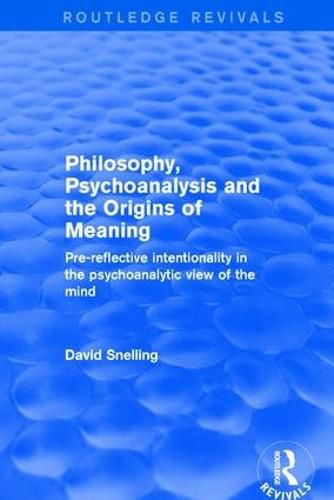Readings Newsletter
Become a Readings Member to make your shopping experience even easier.
Sign in or sign up for free!
You’re not far away from qualifying for FREE standard shipping within Australia
You’ve qualified for FREE standard shipping within Australia
The cart is loading…






This title was first published in 2001. Drawing on recent work in the philosophy of psychoanalysis, and on considerations of the nature of psychoanalytic theory itself, this book reveals new possibilities which psychoanalysis offers for an understanding of the mind - more broadly, the subject of mental states - and its relation to the world. Entailing a re-examination of an approach embedded in the work of certain Continental thinkers, notably Heidegger and Hegel, the connections between philosophy and psychoanalysis presented in this book represent a fresh departure. Linking Kleinian notions of an inner world of unconscious phantasy, to philosophical conceptions of non-linguistic meaning whose significance for the psychoanalytic understanding of subjectivity has been hitherto overlooked, Snelling argues that psychoanalysis demands a significant place in our philosophical understanding of ourselves.
$9.00 standard shipping within Australia
FREE standard shipping within Australia for orders over $100.00
Express & International shipping calculated at checkout
This title was first published in 2001. Drawing on recent work in the philosophy of psychoanalysis, and on considerations of the nature of psychoanalytic theory itself, this book reveals new possibilities which psychoanalysis offers for an understanding of the mind - more broadly, the subject of mental states - and its relation to the world. Entailing a re-examination of an approach embedded in the work of certain Continental thinkers, notably Heidegger and Hegel, the connections between philosophy and psychoanalysis presented in this book represent a fresh departure. Linking Kleinian notions of an inner world of unconscious phantasy, to philosophical conceptions of non-linguistic meaning whose significance for the psychoanalytic understanding of subjectivity has been hitherto overlooked, Snelling argues that psychoanalysis demands a significant place in our philosophical understanding of ourselves.